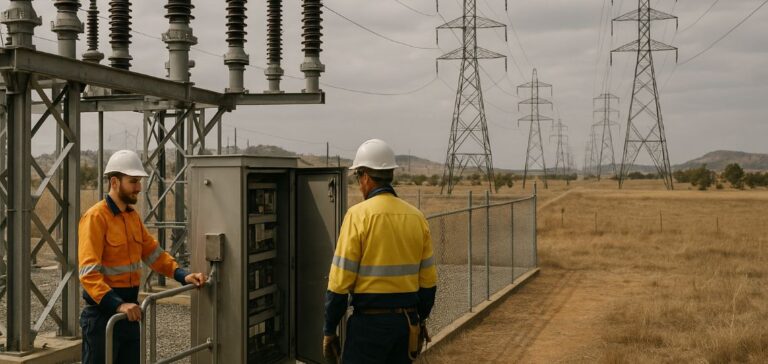The government of New South Wales has concluded a public-private partnership (PPP) agreement with the Acerez consortium in the field of power transmission, the first of its kind in Australia. This 35-year contract covers the financing, design, construction, operation and maintenance of a network of over 240 kilometres of high-voltage transmission lines. It also includes eight substations intended to connect renewable electricity generation sites to the main grid, located in the Orana region.
Vinci teams up with Acciona and Endeavour Energy
The Acerez consortium brings together Vinci, through its specialised subsidiary Cobra Instalaciones y Servicios (Cobra IS), Spanish company Acciona and Australian distributor Endeavour Energy. Together, they are responsible for deploying 330 kV and 500 kV lines that will link solar photovoltaic and onshore wind production facilities to distribution infrastructure. The project is planned to be commissioned progressively, aiming to connect up to 4.5 gigawatts (GW) of additional capacity by 2028.
A project aligned with state energy policy
This partnership forms part of the development strategy for Renewable Energy Zones (REZ) initiated by the government of New South Wales. These zones, which combine generation and electricity storage capacity, aim to anticipate the gradual shutdown of ageing coal-fired power stations. According to projections, the project will supply up to 2 million households and enhance network reliability in one of the state’s most dynamic regions.
Economic stakes and regional development
The site, located in the Orana region, is expected to generate up to 5,000 jobs at the peak of construction and attract up to AUD20bn (approximately €12.2bn) in private investment by 2030. Cobra IS, which has already deployed its expertise on similar projects in Brazil, is reinforcing its expansion strategy in the Australian large-scale energy infrastructure market through this contract.






















